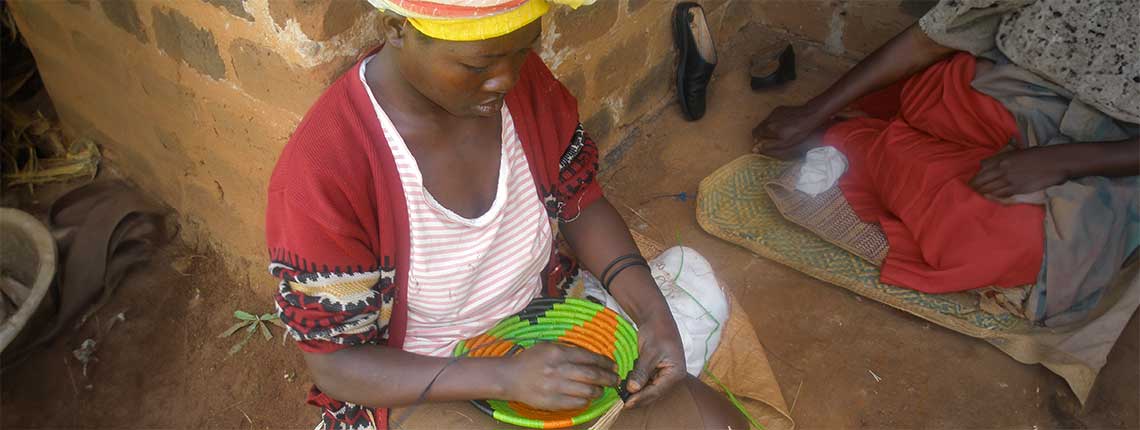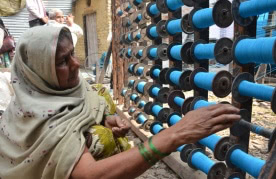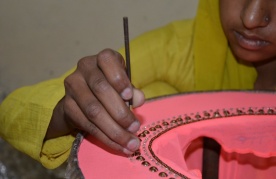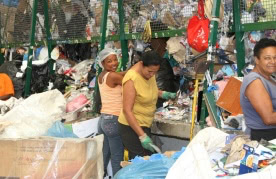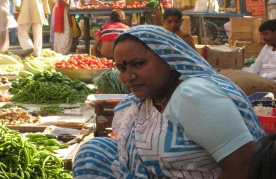Recent Posts
Por Melanie Sampson
Desde 2007, WIEGO ha trabajado con grupos de recicladores y recicladoras alrededor del mundo que organizan y representan a gente que se gana la vida vendiendo y reutilizando lo que otros han desechado como basura. Estos grupos luchan por conseguir que estos trabajadores sean reconocidos formalmente y remunerados de manera justa por la crucial contribución que hacen a los sistemas municipales de gestión de residuos, al medio ambiente y a la vida de la ciudad.
This is the second of a two-part essay on women home-based workers in Sunder Nagari slum in Delhi. Read part one here.
When we visited Sunder Nagari, a slum in Delhi, in the middle of the day, it was a buzz of activity. Nearly every tiny home was a site of economic production, with many women and men working to produce a variety of goods – from embroidered and/or embellished garments and jewellery, to repairing shoes to stitching garments, weaving textiles and even manufacturing small mechanized parts.
This is the first of a two-part essay on women home-based workers in Sunder Nagari slum in Delhi. Read part two here.
This piece originally appeared in the Huffington Post as part of the series "What's Working: Sustainable Development Goals.
Rapid urbanization has burdened cities with an issue that no one can ignore -- unprecedented amounts of trash. World cities generate a whopping 1.3 billion tons of waste per year -- an issue that will only get worse unless strategic steps are taken.
Ela Bhatt is Founder of SEWA (Self-Employed Women’s Association) and the Founding Chair of WIEGO (Women in Informal Employment: Globalizing and Organizing)

